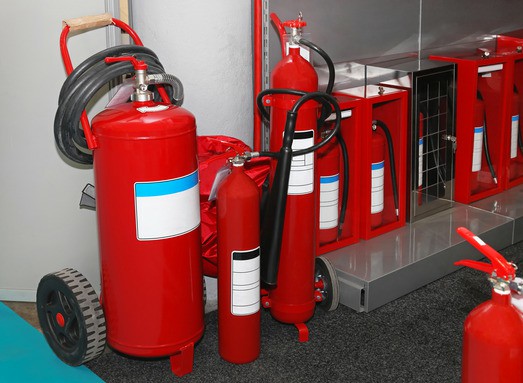Fire Safety Certification: Your Comprehensive Guide to Workplace and Home Fire Prevention in Dublin, Cork, Galway, Limerick, Waterford, and Belfast
Fire is a silent destroyer—quick, consuming, and often unpredictable. In a world where businesses and families are pivotal to the fabric of our communities, understanding and implementing fire safety protocols is not just crucial but legally mandated. In the vibrant cities of Dublin, Cork, Galway, Limerick, Waterford, and Belfast, the urgency for effective fire safety training cannot be understated. Join us as we explore the essential reasons why Fire Safety Training is integral to ensuring safety in both workplaces and homes throughout Ireland.
What is Fire Safety Training?
Fire Safety Training equips individuals and organizations with the knowledge and skills to prevent and respond to fire incidents. In Ireland, formal Fire Safety Training courses cover a range of topics including fire prevention strategies, emergency response planning, fire risk assessment, and compliance with legal obligations. Whether you run a business or simply want to protect your home, this training is essential.
The Benefits of Fire Safety Certification
- Legal Compliance: In Ireland, businesses are obligated under fire regulations to ensure that staff are adequately trained in fire safety. Achieving Fire Safety Certification helps organizations stay compliant and avoid potential legal ramifications.
- Employee Safety: With fire safety training, employees learn how to identify fire risks, which empowers them to take proactive measures. This not only helps in accident prevention but also boosts overall workplace morale.
- Emergency Preparedness: A robust emergency response plan is a cornerstone of effective fire safety training. Organizations are taught how to prepare for fires and safely evacuate personnel, significantly improving their crisis handling capabilities.
- Cost Saving: By investing in fire safety training, businesses can reduce the economic burden associated with fire damage, legal fees, and insurance premiums. Prevention is always cheaper than recovery.
- Community Responsibility: Fire safety training fosters a culture of safety that extends beyond the workplace to communities, enabling individuals to protect their neighborhoods and families.
How to Get Fire Safety Certified
Acquiring Fire Safety Certification in Ireland has never been easier, especially with a myriad of online courses available, designed to fit into any busy schedule. Here’s how you can get started:
- Choose a Course: Select a reputable online platform that offers comprehensive Fire Safety Training Courses tailored for your specific needs, whether for personal safety or workplace compliance.
- Complete the Training: Engage with dynamic content, including interactive modules, videos, and case studies. Many courses also feature quizzes to test your knowledge along the way.
- Pass the Assessment: Successfully complete the final assessment to demonstrate your understanding of fire safety principles and practices.
- Receive Certification: Upon passing, you will receive your Fire Safety Certificate, which can be shared with employers or displayed in your home.
Online vs. In-Person Fire Safety Training
In the digital age, online fire safety training courses are not only convenient but also highly effective. Here’s why:
- Flexibility: Online courses allow participants to study at their own pace, enabling them to balance work, family, and learning.
- Cost-Effective: With no travel expenses and the ability to learn from home, online courses are often more economical.
- Accessibility: High-quality training is available irrespective of location, benefiting even those in rural areas.
Common Workplace Fire Safety Violations
Despite the importance of fire safety, many businesses overlook critical aspects. Common violations include:
- Blocked emergency exits
- Inadequate fire extinguisher coverage
- Lack of regular fire drills
- Failure to maintain fire safety equipment
Identifying and rectifying these violations can drastically reduce the risk of fire incidents and enhance overall safety.
Enhancing Emergency Response Planning
Fire safety training also emphasizes the importance of emergency response planning. This process typically includes:
- Creating an Emergency Action Plan (EAP)
- Designating Fire Wardens
- Conducting regular fire drills
- Establishing clear communication lines during emergencies
Such preparations ensure that everyone knows their role during a fire incident, improving safety outcomes significantly.
How to Conduct a Fire Risk Assessment
Implementing a fire risk assessment is a fundamental part of fire safety compliance. Here’s a concise guide to conducting one:
- Identify Hazards: Walk through the premises to identify potential fire hazards.
- Evaluate Risks: Determine who might be harmed and how.
- Implement Control Measures: Take steps to mitigate identified risks.
- Review and Revise: Regularly revisit the assessment and update as necessary.
Conclusion
Fire safety is not just a regulatory requirement; it’s a moral obligation to protect lives and property. With specialized Fire Safety Training available throughout Dublin, Cork, Galway, Limerick, Waterford, and Belfast, it is now easier than ever to achieve and maintain fire safety compliance.
Elevate your safety standards today! Enroll in our Fire Safety Training Course online to ensure a safer workplace and home environment. For further inquiries or to register, please contact us at [email protected].



 349,500 Offered Certificates
349,500 Offered Certificates
 24/7 Online Training
24/7 Online Training
 Money Back Guarantee
Money Back Guarantee
 Fully Accredited Courses
Fully Accredited Courses
